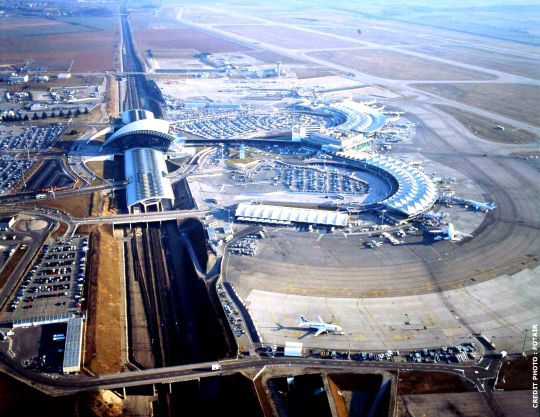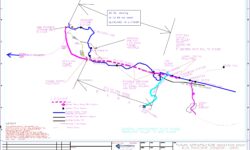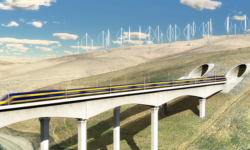Country roads crumble under the weight of grain trucks
Regional councils are fed up with the damage heavy trucks are inflicting on their roads, and they're pointing the finger at the grain and mining industries.
They claim a lack of investment in branch rail lines means more freight is travelling by road, leaving councils to foot the bill for road repairs
At the terminal at Port Kembla in NSW, 90 per cent of the grain arrives by rail, but that still leaves 10 per cent on heavy trucks through Wollongong's suburbs.
"You only have to look at the roads and the M1, the standard of the roads buckling because of the trucks; the B-Doubles and B-triples. This is crazy stuff, these should be on rail," and should not be allowed for other traffic safety.
This coastal town is an ally of the central NSW councils like Cowra, who are developing a public/private partnership project to restore a 220-kilometre freight rail line.
A restored inland track would link with another rail line to the coast, taking heavy freight away from the Blue Mountains and the South Coast commuter train network.
It will cost is up to $250 million or more, and some companies have expressed interest in building it.
"The south coast rail line is a classic example where we're on a very fragile bit of escarpment. It's geotechnical very vulnerable and there's mining underneath it and the seam gas is a real threat of explosions in any tunnels dug in the area.
"That's why the Maldon Dumbarton line needs to progress linking us and bypassing the metropolitan area, and bringing freight down through the Blue Mountains around the back of Sydney and down the Maldon Dumbarton line."
Instead of investing in rail networks, the NSW Government has just lifted the tonnage grain trucks can take this harvest, which shire councils say is causing roads and bridges to crumble.
In the southern Riverina, the mayor at Lockhart, grain growers, sees both sides of the debate.
"The weight of trucks is a big issue affects pavements, culverts and bridges. I believe its imperative grain should go on rail, to ports of Port Kembla or Port of Brisbane."
"There's is investment (in freight rail) from State or Federal Governments but at this stage is just a cosmetic over decaying lines and pass the use signalling."
At a MBIR Rail conference in Moree in March 2014, the industry was calling for a High Standard Network be built which in fact would see bulk freight trains travel at much higher speeds than the 80km/hr., in the order of 190 - 200 km/hr.
Rail infrastructure nationally is a tale of neglect, according to Major expert in the sector of the rail lobby group, partly because money has been diverted to passenger trains in capital cities, especially Sydney and Perth.
"The challenge in regional rail links is many have had no repairs in over 10 years, because there has not been the pressure for them to be used, so a lot aren't viable currently.
"The average freight train takes 110 trucks off the roads, so by reducing movements it reduces wear and tear on local roads, and local councils copping the bill, and get nothing back from trucking companies."
Queensland is a developing story, where the State Government has boosted rail investment by $50 million recently. And a private agribusiness investor, is working on an inland rail port or hub at Hendon on the edge of the Great Dividing Range.
"The beauty of the south western line is it straddles the Queensland NSW border. It opens up opportunity to send grain, cotton through the Queensland system, even from northern NSW, road freighted to the border of Queensland, and then rail freighted to the Port of Brisbane, through the Hendon Inland Port."
Grains analysts in Australia agrees there needs to be a national discussion, but he says its complex, and it is slowed by Federal Government inaction or just a Band-Aid here or there.
A major increase in grain exports to 20 million tonnes to many different export destinations, with most by container, makes road transport more efficient.
In particular, experts says this year on the east coast there will be a lot of movement of grain north and south, because of a deficit in Queensland.
"That's probably not going to go on rail."




